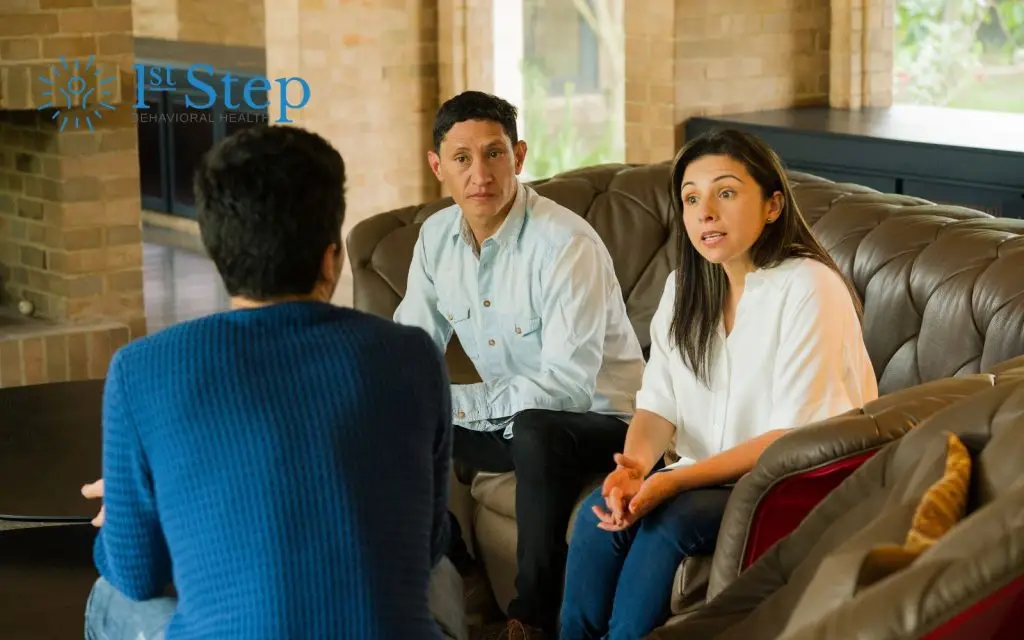When someone you love struggles with substance abuse or addiction, it can be very challenging. You may feel overwhelmed, worried, or anxious as they experience the worsening consequences of substance abuse.
If the addicted person you love is your parent, it can be especially devastating. Instead of relying on your parents for love and care, your parent’s behaviors can make you unsafe. They can leave you without the support you need.
Research shows about 12% of children in the United States live with an addicted parent.[1,2] The effects of living with an addicted parent can affect children in many ways.
It is crucial to help your addicted parent get the treatment and support they need to put substance abuse in the past. But how can children do this?
This article will explore some of the ways children of addicted parents can help them get help. You will learn:
- How to recognize the signs your parent is living with substance use disorder (SUD)
- Ways to get an addicted parent to go to rehab
- How to support a parent struggling with addiction
- How to find guidance, support, and treatment to navigate this challenging situation
Contact the First Step Behavioral Health specialists to learn about our comprehensive addiction treatment programs. Our intake team will help you find the treatment options you need. They can also help you schedule an initial evaluation when you’re ready.
Addiction: Recognizing the Signs
Recognizing your parent’s addiction can sometimes be challenging. However, recognizing drug and alcohol abuse is the first step toward helping your parent get the help they need.
Here are some common signs of addiction to watch for:
- Your parent drinks alcohol or uses drugs more often than they used to
- They need to drink more than before to feel the effects of alcohol, or they can drink a lot without appearing “buzzed”
- Your parent has health problems related to their drinking or drug use
- They have legal or financial issues because of their substance use
- They have withdrawal symptoms (shaking, sweating, feeling nauseated, having anxiety, insomnia, and more) when not drinking or using drugs
- They miss work because they are drunk or hungover
- Your parent has trouble keeping up with daily responsibilities (cooking, chores, paying bills, etc.) because of their substance use
- You observe them drinking or using drugs, or you discover items like pipes, baggies, or needles
If you notice any of these signs, your parent may be struggling with substance abuse issues. Seeking treatment is essential so they can get the help they need to recover. Children with an addicted parent face a higher risk of neglect, physical abuse, mental illness, and other severe outcomes.
If you are an adult, you may take steps to help your alcohol or drug-addicted parent get treatment. If you are a minor (under 18 years old), share this information with a trusted adult. Tell a teacher, close family member, or counselor about your concerns.
How to Support an Addicted Parent
If your parent lives with addiction, you must take steps to help them get treatment. However, you deserve love and support as you navigate this challenging situation. If you are a minor child, ask a trusted adult for guidance and help.
If you are an adult child of an addicted parent, there are some steps you can take to support them, including:
- Learning about addiction as a disease
- Exploring local treatment and recovery programs
- Working with a therapist to determine healthy boundaries
- Staging an intervention
You must take care of your own mental and physical health while supporting your addicted parent. Talk to a counselor or addiction therapist. Join support groups for children of addicted parents. Set healthy boundaries and prioritize your own health and well-being.
How to Get an Addicted Parent to Go to Rehab
Whether you live with your addicted parent or are on your own, their substance use can impact your life in many profound ways. Your parent’s addiction can lead to destructive behaviors that harm their health and your relationship.
The best option is for your parents to seek treatment on their own. Choosing to get help can lead to better outcomes and longer-lasting recovery.
But can you force an addicted parent to go to rehab?
In most cases, the answer to this question is no. Some states allow family members to seek involuntary commitment to addiction rehab. However, it is not possible in most areas of the country.
However, you may convince your addicted parent to seek treatment by staging an intervention. An intervention is a planned conversation between an addicted person and their loved ones.
During an intervention, family members tell the addicted person how their addiction has affected their relationships. At the end, the group asks the addicted person to go to a treatment facility right away.
In inpatient treatment facilities or outpatient programs, your parent will follow a treatment plan consisting of:
- Medical detox services, including supervision, medications, and medical care
- Individual, group, and family therapy
- Behavioral therapies
- Relapse prevention education
- Holistic therapies like exercise, mindfulness, and nutrition support
- Aftercare planning
Find Support
Reach out to the First Step Behavioral Health specialists to explore our holistic addiction treatment programs. We can also help you schedule an intake evaluation.
Our dedicated mental health and addiction professionals can support you and your family at every stage of recovery. Take the first step of your recovery journey by contacting us today.
References:
- National Institute of Health (NIH): Experiences of Parents with Opioid Use Disorder during Their Attempts to Seek Treatment: A Qualitative Analysis
- Substance Abuse and Mental Health Services Administration (SAMHSA): Children Living With Parents Who Have a Substance Use Disorder
Jump to a Section
Call (855) 425-4846
